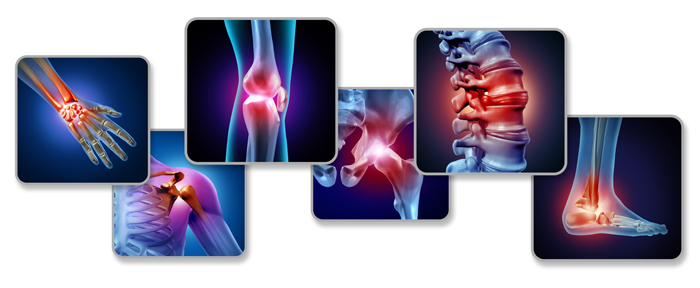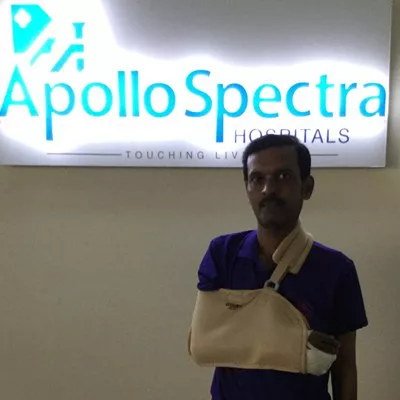Orthopaedic - Pune
Orthopaedics is a medical practice that deals with injuries and disorders related to your body’s musculoskeletal system. This includes treating any disease that affects your bones, joints, ligaments, muscles, tendons and nerves.
Your orthopaedic surgeon will assess your condition and treat it with the best course of treatment. That can involve surgical or non-surgical treatments.
Having an orthopaedic condition restricts your movements and decreases the quality of your life. Hence, it is necessary to get it treated at the earliest.
To know more, you can consult an orthopaedic surgeon near you. Or visit an ortho hospital in Pune.

What are the different types of problems that orthopaedics treats?
We have listed a few common orthopaedic problems below:
- Arthritis: This condition involves the inflammation of your joints, resulting in pain, movement restriction, and loss of joint function. There are various types of arthritis, such as rheumatoid arthritis, gout, osteoarthritis etc. Your doctor will run some diagnostic tests to determine your condition.
- Bursitis: Bursa is a fluid-filled pouch located inside your joints. It provides a cushion to your joint ligaments, tendons and muscles when they move against the hard bone. Swelling or tenderness of the bursa is called bursitis.
- Muscle atrophy: Loss or attrition of muscle tissue over time is called muscle atrophy. It results in muscle weakness and severely limits the movement of the limb. This can occur due to nerve damage or if someone is bedridden, resulting in a lack of use of the muscle.
- Osteomalacia: This condition causes softening of bones in adults. It results in brittle bones and muscle weakness. People with this condition are more prone to fractures, bone pain and bowed limbs.
- Osteoporosis: There is an increased risk of bone fractures in people who have osteoporosis. This condition causes a gradual decline in the density of bone.
- Pinched nerve: Your spine contains multiple nerves that are responsible for controlling all parts of your body. Sometimes a spinal nerve root (the place where a spinal nerve exits the spinal cord between two vertebrae or spinal bones) gets compressed or irritated. This results in pain and movement restriction. Spinal disc problems lead to a pinched nerve that can convert into Spondylitis.
- Tendonitis: This condition results in the inflammation and irritation of tendons. A tendon is a connective tissue that attaches your muscle to your bone. Overuse or repetitive motions can cause tendonitis that results in pain and soreness of that area. People like tennis players are prone to overuse injuries.
What are the symptoms of orthopaedic disorders?
- Deformity of a joint
- Pain
- Chronic fatigue of a joint or muscle
- Joint stiffness
- Limited range of motion
- Swelling or redness
- Numbness or tingling sensation
- Sharp, dull ache or stabbing sensation.
- Muscle spasms
- Hearing a popping or snapping sound during an injury
- Severe pain or swelling
- An open wound that exposes the bone or muscle
When do you need to see a doctor?
If you are experiencing any of the symptoms mentioned above, kindly visit an ortho doctor near you. Timely treatment is essential to treat any orthopaedic condition. Overusing your muscles despite injury or pain can worsen the vitality of the limb and eventually cause severe limitations of your movements.
To consult an orthopaedic surgeon in Pune:
Request an appointment at Apollo Spectra Hospitals, Pune, Maharashtra. Call 18605002244 to book an appointment.
What are the causes behind an orthopaedic injury?
Musculoskeletal injuries usually occur due to acute or chronic trauma. Acute trauma is a sudden injury, whereas chronic injury results from repetitive trauma towards a joint, muscle or bone.
These injuries occur over the course of time. Degenerative changes are another cause of orthopaedic injuries. With advancing age, joints experience more wear and tear that results in degeneration of joints. These changes can cause osteoarthritis and spinal problems.
Conclusion
Orthopaedics is a branch of medicine that treats problems related to the bones, joints, muscles and tendons. Orthopaedic surgeons are equipped to assess your condition and guide you towards the best treatment options.
The treatment choice can be surgical or non-surgical. Your doctor will run some tests to determine a treatment that results in the most favourable outcome.
Yes, orthopaedic surgeons are equipped to treat all joint pains.
Joint replacement surgeries are performed by orthopaedic doctors to replace a dysfunctional joint with an implant. Consult an orthopaedic surgeon near you to learn more.
Most doctors recommend some amount of physical therapy after surgery. This helps in regaining motion and strengthening the muscle.
Our Patient Speaks
From admission to discharge each & every staff of the hospital From Nurses, Doctors, House Keeping, kitchen staff & front office executive are co-operative & guide us very nicely. All staff are very helpful & polite. We didn't face any problem in any procedure. Thank you all. Keep it up....
Kailas Bade
Orthopaedics
ORIF Shoulder
Our Top Specialities
NOTICE BOARD
CONTACT US
CONTACT US
 Book Appointment
Book Appointment



.svg)
.svg)
.svg)
.svg)








